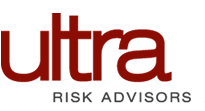This is the second entry in a series of blog posts covering all aspects of managing the media during a healthcare crisis. Being prepared to handle the media during a crisis is an essential aspect of successful management.
In this series we will cover:
- The initial response and disaster planning.
- Crisis communications.
- Selecting and training a spokesperson.
- Dealing with the media and prospecting after the crisis.
Crisis Communication
A crisis in a healthcare setting is the kind of event media finds newsworthy. Facilities must be prepared to deal with communications between the facility, staff, families and news sources. Every facility, no matter the size, should have a communications policy and plan in place to deal with any crisis.
Establish Policies and Procedures.
Policies and Procedures for dealing with communication are essential to heading off misinformation, speculation and rumors. The best interests of the facility will be served when well thought out, and planned procedures are implemented during a crisis. Determining what will be disclosed, who is responsible for disclosure and when disclosure is to be provided will make control of the communication an asset for the facility. Knowing who, what, where and how the community will be informed is essential for controlling the image of the facility in the community.
Appoint a spokesperson for different functions:
- Media spokesperson
- Family spokesperson
- Patient spokesperson
- Employee spokesperson
- Determine set times for dissemination of information.
- Create consistent content for all groups.
- Be truthful at all times.
- Use professional terms, articulate descriptions and accurate facts.
While it may be advisable to have one spokesperson for every instance, if multiple spokespersons are designated, create a system whereby all communications are equal in content and message.
Spokesperson
During a crisis, three essential groups emerge who need spokespersons; it may not be the same person for all communication, it may require one, two or even three different people to handle these groups:
- Media: What is said to the media has an impact that is long lasting and directly affects the reputation of the facility following the crisis. The media spokesperson must be articulate, able to handle emotions and rapid fire questions. Being in front of the camera is a skill few have been comfortable with, and equally important is the media that prints specifics regarding the crisis event. With the advent of the Internet, news stories can live on cyberspace for years. The media spokesperson may need to keep a file of composed statements that can be read to new media or released in print to avoid unplanned last minute crisis response.
- Families: Families will hear about crisis events. It is always best to inform families before the media reports the crisis. The person responsible for informing families needs to be one who can remain calm and upbeat in the face of impending crisis reactions from family members. It may make perfect sense to select the Social Services Director for this position, and it will be necessary for that person to compile a team of competent staff who are well respected by families. Hearing about bad news from a trusted employee is far better than hearing news from a stranger.
- Staff: During a crisis it is essential that patients receive services in a normal expected level of care. The staff spokesperson must be someone trusted by staff to be supportive, factual and truthful. Keeping the staff from reacting in a negative way is important to crisis management. If staff perceives that management is worried, frightened or misdirected, direct care staff will react unfavorably. Many times staff want to hear from the medical director, administrator, or corporate official with assurance that their jobs are secure and they will be well taken care of. The most essential factor is that staff will show up for work at the appointed time for the scheduled shift. Secondly, staff must feel they are well trained to manage media and family inquiries and questions.
- Legal Representation: Many crisis situations will require the services of corporate attorneys or attorneys hired from the community. Most attorneys are well trained to address media in crisis situations. It is prudent to interview counsel to determine what attorneys will say to press. Additionally, it may be helpful for legal representatives to train staff to respond to media and families. Projecting a united front is essential for consistent crisis management.







COMMENTS
No comments yet. You should be kind and add one!
The comments are closed.